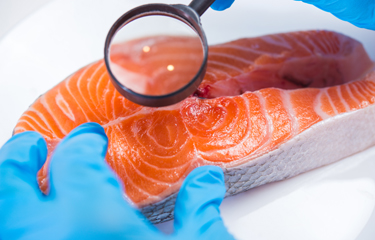Even though a federal judge ruled in December that the U.S. Food and Drug Administration has the authority to regulate genetically modified salmon, a commercial fishing group that sued the agency is declaring “partial victory.”
That’s because, in May, the judge will hear arguments on the second part of the case, which questions whether the FDA’s approval of GM salmon was deficient.
“The FDA’s assertion of authority is valid. Under the plain language of the Food, Drug, and Cosmetic Act, the FDA has the authority to require companies to seek its approval before creating and breeding genetically engineered animals,” U.S. District Judge Vincent Chhabria wrote in the order.
The FDA regulates drugs, including veterinary drugs. While the genetic material used to modify an animal does not seem like a “drug” in the colloquial sense, “the statutory definition of ‘drug’ is far broader than the ordinary meaning of that word, and the modification of an animal’s genetic makeup falls squarely within the statutory definition,” Chhabria wrote.
“Because the FDA possesses the authority to regulate this conduct, and for the additional reasons set forth in this ruling, the government largely prevails in this round of the litigation,” Chhabria added.
The original complaint was filed by the Institute for Fisheries Resources, Pacific Coast Federation of Fishermen’s Associations (PCFFA), the Golden Gate Salmon Association, Friends of the Earth, the Center for Food Safety, and other organizations in the U.S. District Court for the Northern District of California in 2016.
“We fully support the robust regulatory process and comprehensive work done by FDA in its approval of AquaBounty’s genetically engineered salmon,” AquaBounty President and CEO Sylvia Wulf told SeafoodSource in response to the ruling. “We will not comment further on ongoing litigation and look forward to the successful resolution of this matter.”
The PCFFA is calling the order a “partial victory,” since the court will hold a hearing in May to decide whether the agency’s approval of GM salmon was faulty.
“It gives us another shot to show that FDA is not capable of handling all these issues,” PCFFA Regional Director Glen Spain told SeafoodSource.
The FDA only considers the impact of a drug or substance on humans; it “cannot look at the ecosystem as a whole,” Spain said.
“By introducing Atlantic salmon [into the wild], it could it crash the Pacific salmon resources. If those genes get into the genetic pool in salmon on the West Coast, it could be highly devastating to the wild stocks,” Spain added.
Instead of FDA, the National Marine Fisheries Service is the “logical choice” to regulate GM salmon – either on its own or in conjunction with FDA – Spain said.
In addition to regulating fisheries, NFMS “deals with endangered and protected marine species,” Spain added.
Photo courtesy of AnnaVet/Shutterstock







